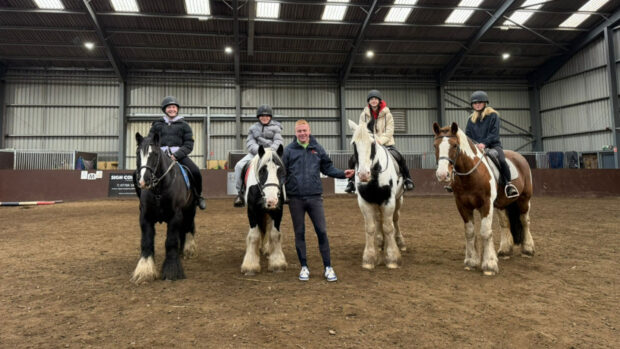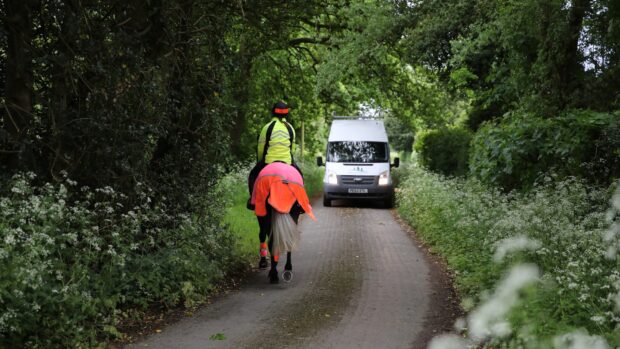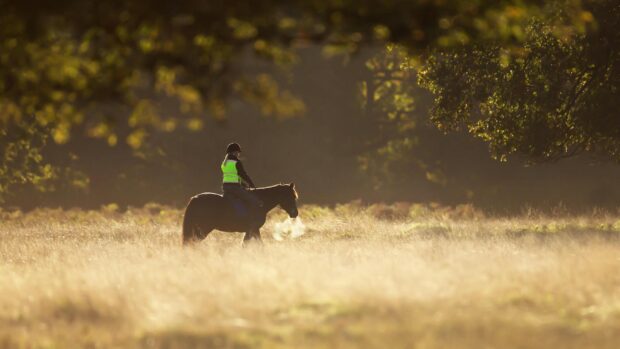A new “grooms’ passport” that aims to recognise ability and experience and help grooms achieve some kind of career progression was revealed last week, at an open forum hosted by the British Horse Society (BHS).
Unveiling these plans in the “Grooms Skills Passport”, British Equestrian Federation (BEF) grooms representative Lucy Katan said: “Many grooms lack recognised qualifications but are often highly skilled. The passport is not a qualification and doesn’t compete with any of the qualifications available. It will create job titles, recognition and status.”
The passport, still in development, is likely to launch late 2006 or early 2007. It aims to bridge the gap for many grooms who have practical experience but lack the qualifications currently offered by bodies such as the BHS and Association of British Riding Schools (ABRS). It will hinge around a new set of job profiles and “skill measurements”.
It is being produced by the BEF and LANTRA, the government’s land-based skills council. Initiated in 2003, early work on the passport was further fuelled with the release of a British Horseracing Board report in June 2004 criticising the racing industry. Compiled by Lord Donoghue, it detailed outdated working practices, poor pay and dissatisfaction among stable staff.
“The report highlighted a perceived lack of career opportunities, which is linked to recognition,” said Sara Hays-Jahans, head of industry recruitment and training at the British Horseracing Board.
“We’re a bit behind the BEF on the skills passport,” she said. “But we are working to introduce a skills listing system into racing — and want to learn from the BEF’s experiences to see what might suit the racing industry.”
Four “levels” of groom have been suggested in the Skills Passport: foundation, intermediate, advanced and elite (travelling/yard manager). Each level contains core skills, plus a choice of specialising in competition, racing or stud skills. The idea is that interested grooms procure a passport from LANTRA and, with input from their employers, work through each section, choosing one specialism, and logging skills and experience as they are acquired.
“This is very much work in progress,” said Lucy Katan. “We need to iron out some issues, run another pilot project, and then more industry consultation.”
“I feel hunting and riding school grooms are currently under-recognised in the plans,” she added, in response to comments that, under the auspices of the BEF, the passport was too orientated towards competition grooms.
The passport was well received among grooms, employers and students at Thursday’s forum. Their main concern was over the sign-off procedure.
BHS director of standards Margaret Lillington-Payne warned: “There’s no quality assurance [with an employer sign-off] and if it has no credibility in the industry it will fail.”
But speaking to H&H on Monday, Olympic dressage rider Richard Davison welcomed the concept.
“It’s a terrific idea,” he said. “Any young person thinking about carving out a career needs a pathway. It gives employers a syllabus to work to, and the grooms a career ladder and sense of achievement as they attain the levels.”
He said any “responsible employer” could sign the passport, and if the scheme took off, verification could be reviewed.
Additionally, the BEF has announced plans formally to incorporate grooms into its remit.
“On 14 June the BEF board will recommend to the council that we put the subject of grooms as a whole into our plans,” said chief executive Andrew Finding. “[Performance manager] Will Connell and his department will run the elite grooms element, and we will invite the BHS to take responsibility for development work and all other matters [see below].”
SUBSCRIBE TO HORSE & HOUND AND SAVE Enjoy all the latest equestrian news and competition reports delivered straight to your door every week. To subscribe now and enjoy 18 issues FREEclick here >>
|



